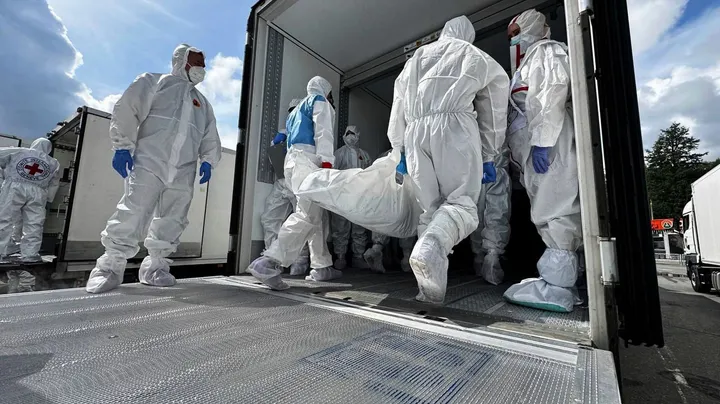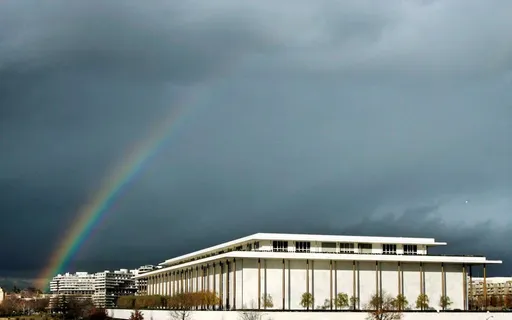Indian authorities have reimposed restrictions on movement in major parts of India-administered Kashmir's biggest city, Srinagar, on Sunday after violent overnight clashes between residents and police, in which dozens were injured, two senior officials and eyewitnesses said.
They also reversed a decision to allow internet and mobile phone use in parts of the Jammu region, according to one official, amid concerns about the spread of rumours online.
In the past 24 hours, there has been a series of protests against New Delhi's August 5 revocation of Jammu and Kashmir state's autonomy. This followed an easing in curbs on movement and phone use on Saturday morning.
The state government has said that it did not impose a curfew over the past two weeks, but on Sunday people were being turned back at multiple roadblocks set up in the city over the past few hours, with security forces at some roadblocks telling residents that there is a curfew.
Violent clashes
Two senior government officials said that at least two dozen people were admitted to hospitals with pellet injuries after violent clashes broke out in the old city on Saturday night.
One official source said that people pelted security forces with stones in around two dozen places across Srinagar. He said that the intensity of the stone pelting protests has increased over past few days.
The heavy overnight clashes took place mostly in Rainawari, Nowhetta and Gojwara areas of the old city, where Indian troops fired tear smoke, chilly grenades and pellets to disperse protesters, eyewitnesses and officials said.
Chilly grenades contain very spicy chili pepper, and produce a major eye and skin irritant, as well as a pungent smell, when they are unleashed.
The officials, who declined to be identified because they aren't supposed to talk to the media, said clashes also took place in other parts of the city including Soura, a hotbed of protests in the past two weeks.
A senior government official and hospital authorities at Srinagar's main hospital said that at least 17 people came there with pellet injuries. They said 12 were discharged, while five with grievous injuries were admitted.
The hospital officials and a police officer said that a 65-year-old man, Mohammad Ayub of Braripora, was admitted to the hospital after he had major breathing difficulties when tear gas and chilly grenades were fired in the old city area on Saturday afternoon. He died in the hospital on Saturday night and has already been buried.
Blocking the way
Javed Ahmad, 35, from the wealthy Rajbagh area of Srinagar, was prevented from going to the old city early on Sunday morning by paramilitary police at a barricade near the city centre.
"I had to visit my parents there. Troops had blocked the road with concertina wire. They asked me to go back as there was curfew in the area," he said.
Telephone landlines were restored in parts of the city on Saturday after a 12-day blackout.
The Internet and cell phones remain blocked in Kashmir.
At least 4,000 detained
Meanwhile, thousands of people have been detained in India-administered Kashmir over the past two weeks, according to government sources.
A magistrate said on condition of anonymity that at least 4,000 people were arrested and held under the Public Safety Act (PSA), a controversial law that allows authorities to imprison someone for up to two years without charge or trial.
"Most of them were flown out of Kashmir because prisons here have run out of capacity," the magistrate said, adding that he had used a satellite phone allocated to him to collate the figures from colleagues across the Himalayan territory, amid a communications blackout imposed by authorities.
Authorities have repeatedly declined to provide a tally of how many people have been taken into custody, apart from confirming more than 100 local politicians, activists and academics were detained in the first few days after the state was stripped of its semi-autonomous status.
They said the "few preventive detentions" were made to avoid a "breach of the peace" in a region that has fought an armed rebellion against Indian rule for three decades.
Jammu and Kashmir government spokesman Rohit Kansal said previously there was "no centralised figure" for the total number of people detained.
But numerous government officials in Kashmir's main city Srinagar, including police and security personnel, have confirmed the sweeping arrests.
A police official who asked to remain anonymous said "around 6,000 people were medically examined at a couple of places in Srinagar after they were detained".
"They are first sent to the central jail in Srinagar and later flown out of here in military aircraft," he added.
Another security official said "thousands are jailed" but that the figure did not include other residents whose detentions at police stations had not been recorded.
In the Hindu-majority city of Jammu, after authorities cut mobile Internet services on Sunday, they warned locals not to circulate messages or videos on social media that they said were fake, according to PTI.
Public anger
New Delhi's shock decision has sparked public anger and frustration and there have been several rallies in Srinagar attracting thousands of demonstrators.
At least 50,000 people have been killed in the Indian-controlled Kashmir over the past 30 years. Critics say the decision to revoke autonomy will cause further alienation and fuel the armed resistance.
The change will allow non-residents to buy property in Jammu and Kashmir, and end the practice of reserving state government jobs for local residents.
Prime Minister Narendra Modi's government has said the measure is necessary to integrate Kashmir fully into India and speed up its development.
























